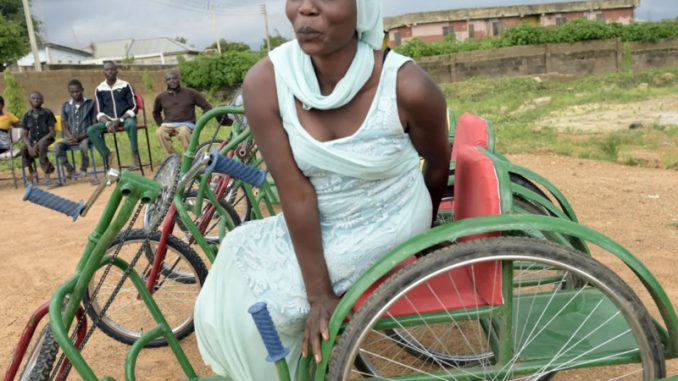
Disability rights and social inclusion have become crucial topics in Nigeria, and it is imperative to put concerted efforts into implementing the Persons with Disabilities Prohibition Act.
Recently, the Executive Director of Project Enable Africa, Mr. Olusola Owonikoko, has emphasized the need for a unified approach to enforce the law effectively. In this article, we will explore the significance of the Act, the challenges faced by persons with disabilities, and the efforts being made to promote disability rights and social inclusion in Nigeria.
The implementation of the Persons with Disabilities Prohibition Act is crucial for promoting disability rights and social inclusion in Nigeria. Efforts must be made to prevent delays in future disability-related legislation and document the struggles and challenges faced by persons with disabilities.
The COVID-19 pandemic has further highlighted the need to address their unique needs in the post-pandemic era. Recognition of individuals’ contributions and the establishment of government initiatives are steps in the right direction. However, true change can only be achieved through collaboration and the active promotion of social inclusion. By working together, Nigeria can create an inclusive society that respects and empowers persons with disabilities.
Disability Rights
The Importance of Implementation
The Persons with Disabilities Prohibition Act was passed into law after 18 years of advocacy and struggle. However, merely having an Act in place is not enough; it is essential to ensure its full implementation. Owonikoko warns that if we don’t document history and learn from it, we are bound to repeat the same delays in future disability-related legislation. Nigeria must prevent such delays and expedite the passage of upcoming bills and acts concerning disabilities.
Documenting Struggles and Challenges
To ensure the effective implementation of the Act and future legislative processes, it is crucial to document the struggles and challenges faced by persons with disabilities. Mr. Owonikoko expressed hope that a documentary produced in collaboration with Columbia University would shed light on the processes leading to the Nigerian Disability Act. This documentary aims to create awareness and expedite change by showcasing the resilience of persons with disabilities and the need for inclusive policies.
“It is easy to just believe that we have an Act and just move on, but let’s not forget that if we don’t document history and pay attention to it, we will repeat it.” – Mr. Olusola Owonikoko
The Post-COVID-19 Challenges
The COVID-19 pandemic has posed numerous challenges for everyone, particularly persons with disabilities. The post-pandemic era demands a renewed focus on ensuring their rights and inclusion. The Disability Inclusion and Leadership (DIAL) Awards ceremony acknowledged these challenges and awarded individuals for their outstanding contributions to the disability rights movement. It is crucial to address the unique needs and vulnerabilities of persons with disabilities in the aftermath of the pandemic.
Recognition of Efforts
The DIAL Awards ceremony celebrated the International Day of Persons with Disability and recognized the resilience of Nigerians with disabilities. Notable recognitions were awarded to individuals who have made significant contributions to the disability rights movement. The Senior Special Assistant to the President on Disability Matters, Mohammed Isa, received the prestigious Disability Inclusion and Accessibility Leadership Award for his instrumental role in the enactment of the Act.
“The DIAL Awards serve as a call for continued efforts to improve humanity.” – Mr. Paul Ihekwoaba, Executive Director of Global Hope and Justice
The Role of Government Initiatives
The Nigerian government has taken steps toward promoting disability rights and social inclusion. Former President Muhammadu Buhari signed the Discrimination Against Persons With Disabilities (Prohibition) Act into law, marking a milestone in the advocacy for disability rights. Additionally, the establishment of the National Commission for Persons with Disability demonstrates the government’s commitment to addressing the needs of persons with disabilities.
The Need for Social Inclusion
Social inclusion is a critical aspect of ensuring the well-being and rights of persons with disabilities. It is not enough to have laws in place; society must actively work towards creating an inclusive environment. This includes providing equal educational opportunities, accessible infrastructure, employment opportunities, and healthcare services. By promoting social inclusion, Nigeria can empower persons with disabilities and enable them to lead fulfilling lives.
Collaboration for Change
Implementing the Persons with Disabilities Prohibition Act requires collaboration among various stakeholders. Civil society organizations, government agencies, and the private sector must work together to create an inclusive society. By pooling resources and expertise, these entities can ensure the effective enforcement of the Act and address the unique challenges faced by persons with disabilities.
By Obinna Ejianya (9News Nigeria – Melbourne, Australia)
